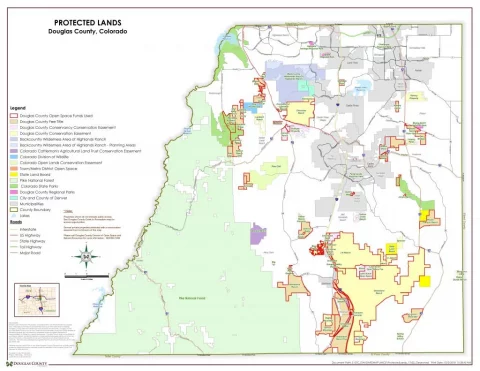dedication and hard work of staff and our advisory board (COSAC), and the support of County residents. Contact the Division of Open Space at 303-660-7495 with any questions regarding the following strategies or with other land preservation questions.
Douglas County has a vested interest in the following private-access properties, that are protected by conservation easements. For more information or questions on any of the specific, individual properties, please contact Douglas County Open Space at 303-660-7495. Some properties, where referenced, may be visited by appointment.
Reasons behind the properties being private-access include the presence of conservation easements, riparian areas, or wildlife habitats or corridors; the land is the site of historic significance; not being ready for regular traffic; still being maintained by private landowners; and more.

